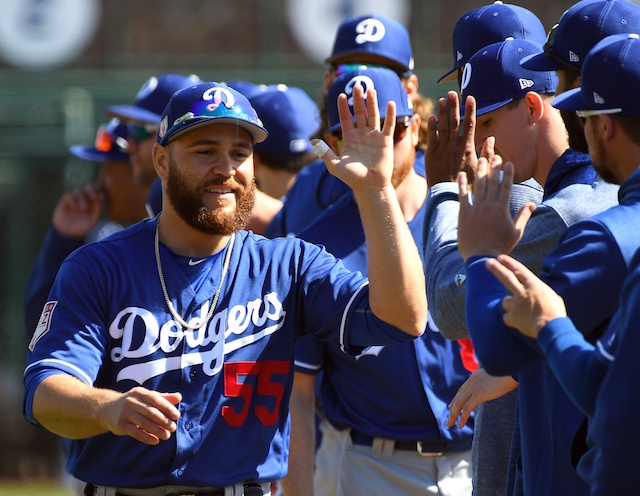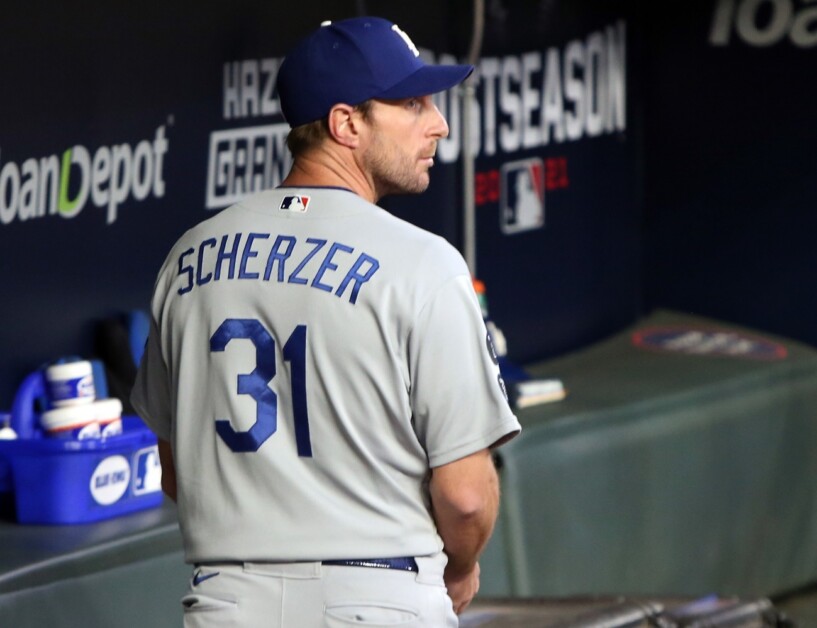Former Los Angeles Dodgers first baseman Steve Garvey announced he is running for United States Senate in California to succeed Sen. Dianne Feinstein, who died at the age of 90-years-old on September 29, 2023. Feinstein had been in office since 1992.
In the video announcing his candidacy, Garvey, a registered Republican and supporter of former president Donald Trump, played heavily into his time with the Dodgers and San Diego Padres.
“I never played for Democrats, or Republicans or Independents,” he says. “I played for all of you. Now I’m running for U.S. Senate in California, a state that I believe at one time was the heartbeat of America, and now it’s just a murmur.”
Garvey’s campaign website, which lacks specific details on his policies, says he is focused on “quality-of-life issues, public safety, and education.”
On quality-of-life, Garvey criticizes current California politicians for “continuously passing foolish laws and increasing taxes and fees, resulting in higher costs for our basic needs, such as food, gas, and shelter.”
Garvey says he would “take a stand against out-of-control inflation and be a voice for the middle class and working families that are the backbone of our state.”
He also criticizes the “high taxes and red tape” that have “made it impossible to start a small business and create jobs in our state,” citing his “new approach that embraces small businesses and job creation, gets government out of the way, and taps into the spirit of hard-working small business owners and job creators across California.”
Garvey’s plan for education is to “empower parents and teachers who know what’s best for their children and students,” and “put the interest of all students first.”
The 74-year-old additionally called for an increase in funding to police departments, despite those budgets already rising across the state every year. In L.A., mayor Karen Bass’ agreement with the union representing the LAPD raises the budget from $3.2 billion currently to $3.6 billion by 2027, making up roughly a quarter of the city’s budget.
Garvey also claims “the best way to deter crime is to enforce our laws,” however, numerous studies have shown investing in community resources and making sure people have their needs met is a better way to prevent crime.
Garvey’s campaign website addresses homelessness, but limits the plan to getting “real about addressing the underlying causes of homelessness, including health and drug addiction,” and says to solve the problem with “with accountability and compassion.”
California has spent more just shy of $18 billion to address homelessness from 2018 to 2022, but the unhoused population continue to grow during that time. The state has already allocated just shy of $21 billion through 2024 to address the homelessness crisis.
Activists have called on California to build more affordable housing units and the state has a plan to build the 2.5 million needed by 2030, but issues remain in the path of achieving that plan.
On the national scale, Garvey supports increased funding for “modernizing our military” and working closely with allies to be “prepared for the threats of tomorrow while actively positioning ourselves to counter the expansion of hostile foreign powers.”
Could Steve Garvey win a U.S. Senate seat in California?
Garvey faces an uphill battle as a Republican with nearly 47% of California voters registered as Democrats, a number that has been increasing, with just less than 24% registered as Republicans. Independents, or no party preference, makes up roughly 23% of California, with minor parties filling out about 7%.
As a Trump supporter, voting for him in the 2016 and 2020 elections, Garvey faces another challenge in the state. Trump lost California in the 2020 election with less than 35% of voters, and in 2016 he recorded fewer than 32% of voters.
Still, Garvey’s name-status and Dodgers highlights gives him a chance in a crowded field in a state that heavily-leans Democrat. The last Republican to win a statewide race in California was Arnold Schwarzenegger in 2006 with help from his star status.
Under California’s voting system, if no candidate receives 50% of the vote in the March primary, the top two vote-getters advance to a runoff in November regardless of their political party, which could also play into Garvey’s benefit thanks to the crowded Democratic side.
It remains unlikely Garvey beats out one of the Democratic candidates, which includes Barbara Lee, Adam Schiff, and Katie Porter, who all have name-value in the state, but his odds figure to be higher than most Republicans who could run in California.
Have you subscribed to the Dodger Blue YouTube channel? Be sure to ring the notification bell to watch player interviews, participate in shows and giveaways, and stay up to date on all Dodgers news and rumors!










